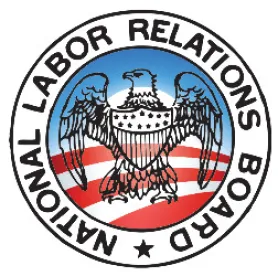The National Labor Relations Board (NLRB) recently announced a Notice of Proposed Rulemaking of its intent to rescind a final rule adopted by the board in 2020 that addressed three important representation issues. The 2020 rule, which has been in effect since April 1, 2020, eliminated the so-called “blocking charge” tactic whereby a union could delay a representation election simply by filing an unfair labor practice charge.
Currently, a union filing an unfair labor practice charge will not halt an election from occurring. Instead, the NLRB will still conduct the election and impound the votes until the charges are resolved. If the subsequent investigation finds no violation, the ballots then are counted. This was a way for the board to ensure a vote is timely conducted and also ensure results are only certified once it is determined no labor law violations occurred.
The 2020 rule also allows employees to immediately challenge the representative status of a union the employer voluntarily recognized by filing a decertification petition. Finally, the 2020 rule allows election challenges to the long settled representative status of unions representing employees in the construction industry.
Now, however, the board is proposing to roll back this 2020 rule and restore prior board law. The proposed rule would restore the “blocking charge” policy, which permits the board to delay an election if an unfair labor practice charge is pending. Next, the proposed rule would reinstate the voluntary recognition bar, which takes away employees’ ability to immediately decertify a union their employer has voluntarily recognized (versus a union voted in by the workforce).
In addition, the proposed rule would make it easier for unions representing construction employees to secure a more permanent relationship by merely including sufficiently detailed language in the collective-bargaining agreement.
The board is currently soliciting public comments on the proposed rule until January 3, 2023, before the rule becomes final. The proposed rule illustrates the NLRB’s apparent priority of protecting the union status of organized workforces. Lauren McFerran, chairman of the NLRB, stated the proposed rule will better protect employee’s “free choice,” however the 2020 rule arguably has been a better mechanism to ensure workers’ desires are honored.
For example, the NLRB’s blocking charge policy – which the proposed rule would reinstate – allows unions to block an election by merely filing a charge alleging unlawful conduct by the employer that would affect employee votes. This tactic is often used by unions to kill momentum when they believe employees would vote them out. In other words, even though a significant number of employees may have filed to hold a vote to oust their union, the blocking charge policy the board is seeking to reinstate would allow a union to halt the election and thwart momentum without much accountability. This scenario allows unions to manipulate and delay elections until a more favorable time instead of reflecting the employees’ wishes.
The proposed rule would make it easier for unions to maintain their representative status, even if the employees no longer wish to be represented by a union. This is likely one of many pro-union rules the NLRB will be poised to issue in the coming months.




 />i
/>i

